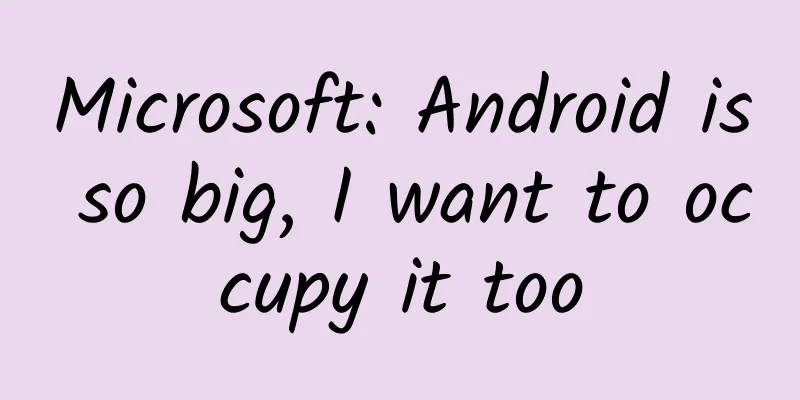Why do these European and American countries restrict the use of facial recognition technology?

|
In the past few years, facial recognition technology has been one of the fastest-growing new technologies. The main driving force behind the development of facial recognition technology is the rapid progress of artificial intelligence-related technologies such as machine learning and cloud computing, as well as increasingly clear and cheap cameras. Facial recognition technology has been used on many people's mobile phones, and face-scanning shopping and face-scanning boarding are no longer new things. In China, the development of facial recognition technology is often considered an encouraging technological advancement, and its widespread application can also arouse the pride and praise of many people. However, in Europe and the United States, facial recognition technology is facing more and more doubts and restrictions. In May this year, the city of San Francisco passed a resolution prohibiting the police and other public authorities from using facial recognition technology. This resolution is very representative because the Silicon Valley Bay Area where San Francisco is located has always been the center of digital technology innovation. Subsequently, Oakland, California, and Somerville, Massachusetts, also issued facial recognition bans. At the national level, two senators proposed a bill to restrict the use of facial recognition technology, which has currently received support from both Republican and Democratic lawmakers. Members of the House of Representatives are also preparing related bills. At the end of August, the Financial Times reported (https://www.ft.com/content/90ce2dce-c413-11e9-a8e9-296ca66511c9): The European Union is considering strict restrictions on artificial intelligence technology. In the planned regulatory plan, if public authorities or commercial companies want to use artificial intelligence technology, all EU citizens involved have the right to know when his (her) facial data is used. Why are these European and American countries and cities so wary of this new technology? In this issue of the members' newsletter, we will talk about this issue.
Restricted objects: Not individuals, but public power and commercial companies First of all, it should be clear that these bans on facial recognition technology do not prohibit individuals from using this technology, nor do they prohibit the development of this technology. In other words, you will not be restricted at all if you use your face to unlock your iPhone. What is really restricted is the application of facial recognition technology by public authorities (government, police, etc.) and commercial companies. The core logic behind this is that when consumers use facial recognition technology, they do so voluntarily and are aware that their faces are being recognized. However, if it is used by public authorities, such as the police using this technology to monitor in public places, the public may not know that their faces are being photographed, scanned, analyzed, compared, and included in the database. Even if they know, they cannot turn off the facial recognition system. This difference has led European and American countries to generally believe that a much higher threshold should be set for the use of facial recognition technology by public authorities. Of course, the use of facial recognition technology by public authorities can bring many benefits, such as improving the rate of solving cases and reducing crime rates. A real case is that in June last year, a large-scale shooting occurred at the Capital Gazette newspaper in Maryland, killing five people. When solving the case, the police used facial recognition technology to identify the suspect. However, these benefits to public safety are not enough to offset people's concerns about the abuse of this technology. The American Civil Liberties Union (ACLU) is the most active NGO in advocating restrictions on the use of this technology by public authorities. Matt Cagle, a lawyer for the agency, said, "This technology gives the government unprecedented power to track people's daily lives. Such excessive power is incompatible with a healthy democratic system." He believes that the role of San Francisco's ban is to prevent this dangerous technology from being used against the public. (https://www.nytimes.com/2019/05/14/us/facial-recognition-ban-san-francisco.html) Attorney Cagle also emphasized that we have no idea to what extent the government and businesses are using this new technology because they have been keeping it secret, and the public is often kept in the dark, which is a very dangerous situation. Simply put, these European and American countries restrict the use of facial recognition technology by public authorities in order to prevent the emergence of an oppressive surveillance state. Such countries are often called "Orwellian" countries - this term comes from Orwell's classic novel "1984". In the novel, Big Brother monitors people's lives all the time through the telescreen, supporting a terrifying totalitarian rule.
In order to prevent this terrible situation from becoming a reality, these countries are willing to compromise to a certain extent and not use facial recognition to pursue an increase in the crime-solving rate. Compared with public authorities, commercial companies do not seem to have the ability to establish "Orwellian" rule, so why should they also be restricted? This is mainly because, if no restrictions are imposed on commercial companies, they may collect facial data on a large scale for the pursuit of commercial interests, and may sell or abuse this data without the permission of the consumers themselves. Many people believe that facial data is the most sensitive biometric data among personal information, and the consequences of its abuse are the most serious, so it should be protected to the highest extent. Errors and biases in facial recognition technology There is another very important reason why these European and American countries and cities have imposed restrictions on facial recognition technology: the technology itself is still immature, has many errors, and will cause discrimination against different groups of people. In April this year, an 18-year-old American college student sued Apple, accusing Apple of using facial recognition technology in stores, and that the technology mistakenly identified him as a thief, causing him to receive a summons for no reason and later be arrested by the police, causing him serious mental damage. The college student demanded $1 billion in compensation from Apple. Apple has denied the allegations. Regardless of the verdict of the case, we can clearly know that current facial recognition technology can indeed lead to "false and wrongful convictions." In January this year, the ACLU tested the facial recognition system Rekognition developed by Amazon and asked the system to identify photos of US congressmen. As a result, the system identified as many as 28 congressmen as criminals. It is particularly noteworthy that in Europe and the United States, the recognition accuracy of facial recognition technology for white people is much higher than that for people of color (especially black people), and the recognition accuracy for men is higher than that for women. (https://www.theverge.com/2019/1/25/18197137/amazon-rekognition-facial-recognition-bias-race-gender) This result is not surprising. When developing facial recognition technology, the photos that researchers used to train the machine were mostly white men, so the machine is better at identifying white men. In contrast, due to the lack of experience in identifying black people and women, the machine is more likely to make mistakes when identifying minorities and women. This bias arises from existing inequalities in society, and it will further strengthen the inequality because once the police use this technology on a large scale, the vulnerable groups will be more likely to fall into false charges. This bias written into technology is often overlooked by people because they tend to accept the view that humans are emotional and prone to bias, but machines are emotionless and should be objective and fair. However, as mentioned repeatedly in previous news lab member newsletters, technology is developed by humans under specific social conditions, and technology itself carries deep biases. If we leave everything to seemingly fair machines and think that everything will be fine, the result may be further aggravation of social inequality and further loss of fairness. Technology is developed by people under specific social conditions, and technology itself may also be deeply biased. Ethical development of artificial intelligence It is precisely because of the above two reasons that many European and American countries and cities have imposed strict restrictions on the application of facial recognition technology. Along with the restrictive ordinance, San Francisco also passed a broader rule that will require city agencies to seek approval before they buy surveillance technology, such as automated license plate scanners and drones with cameras. An article in the technology media Recode (https://www.vox.com/recode/2019/5/14/18623897/san-francisco-facial-recognition-ban-explained) pointed out that the United States is slow to legislate on digital privacy, and some Americans seem willing to sacrifice privacy for convenience (and basically provide personal data to companies, not the government); however, facial recognition technology is likely to hit the sensitive point of American culture, that is, the importance of personal freedom and rights and the fear of government abuse of power. Therefore, the United States is much faster in legislating on facial recognition. For the EU, restrictions on facial recognition technology are part of a larger regulatory plan, which can be called "ethically based laws governing AI." Previous member communications have also mentioned that the EU is not leading in the development of digital technology, but is at the forefront of the world in regulating digital technology.
Of course, the purpose of EU development regulation is not to suppress new technologies, but to hope that new technologies can benefit society as much as possible rather than bring side effects. In the view of EU legislators, restricting artificial intelligence technology can actually increase the public's trust and acceptance of this technology, which will ultimately be conducive to the healthy development and proper application of this technology. According to the Financial Times, the EU hopes to establish a "world standard for AI regulation" through legislation in this area, which can fully protect the rights and interests of individuals through clear, predictable and unified principles. |
<<: To brush or not to brush is not just a matter of "face"
>>: As 5G technology matures, can it help accelerate the implementation of blockchain?
Recommend
A usable brand planning template
If you have never written a brand planning propos...
"A person can be infected with COVID-19 up to 8 times"? Experts: There is no basis for this! Symptoms of reinfection are generally mild
"No matter how healthy or strong a person is...
The 16GB iPad only has half the available space
As applications and multimedia content take up mo...
A Brief Analysis of Mobile APP Security and Compliance Testing Technology
1. Regulatory agencies and policies To ensure tha...
Which industries are suitable for the Qutoutiao platform? July advertising overview
Qutoutiao focuses on "light reading", f...
Eat me? Want to eat me again? Eat me again...
Food lovers must have a love-hate relationship wi...
6 times of submission for review, our application's review journey!
This is the third time I have woken up in the mid...
Raw fish, wolf fin, and "Liao" raw fish soup: This fish shares a "circle of friends" with dinosaurs
In the primary school Chinese textbook, there is ...
Lanzhou home appliance mall mini program development function, how to make a furniture mall mini program?
As the epidemic continues, many companies are not ...
Online music listening is so popular that music downloads hit an 8-year low
After records were abandoned by the entire music ...
A strange cloud in the morning glow in Beijing, did you take a picture of it?
On the morning of December 16, a fiery glow appea...
Analysis of the promotional methods of WeChat Reading’s “Unlimited Card” activity!
1. Case highlights 1. One gameplay brought at lea...
Yan Hu-Infant and Child Home Care Encyclopedia Video
Yan Hu-Infant and Child Family Care Encyclopedia ...
78 lines of Python code to help you reproduce WeChat message withdrawal!
Python once said to me: "Time is running out...
Meizu's flagship earphones 923 are released, which may be the most powerful earphones for mobile phones
On September 23, Meizu will hold a PRO new produc...









